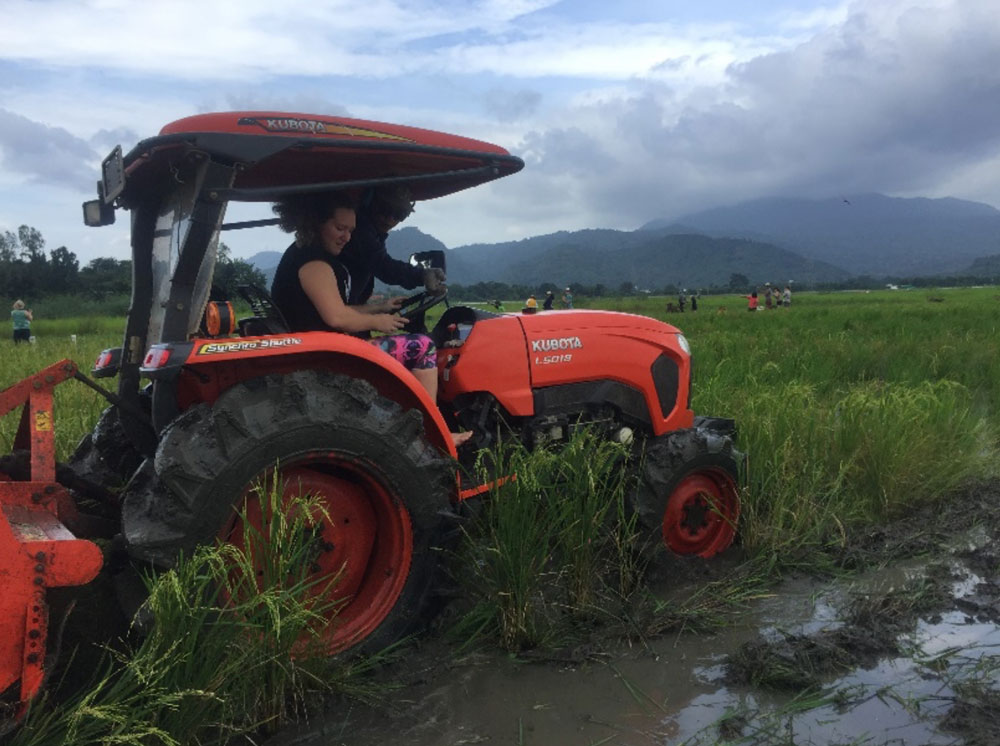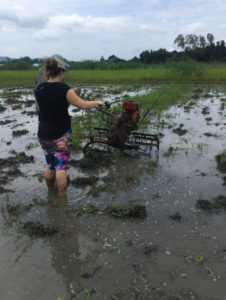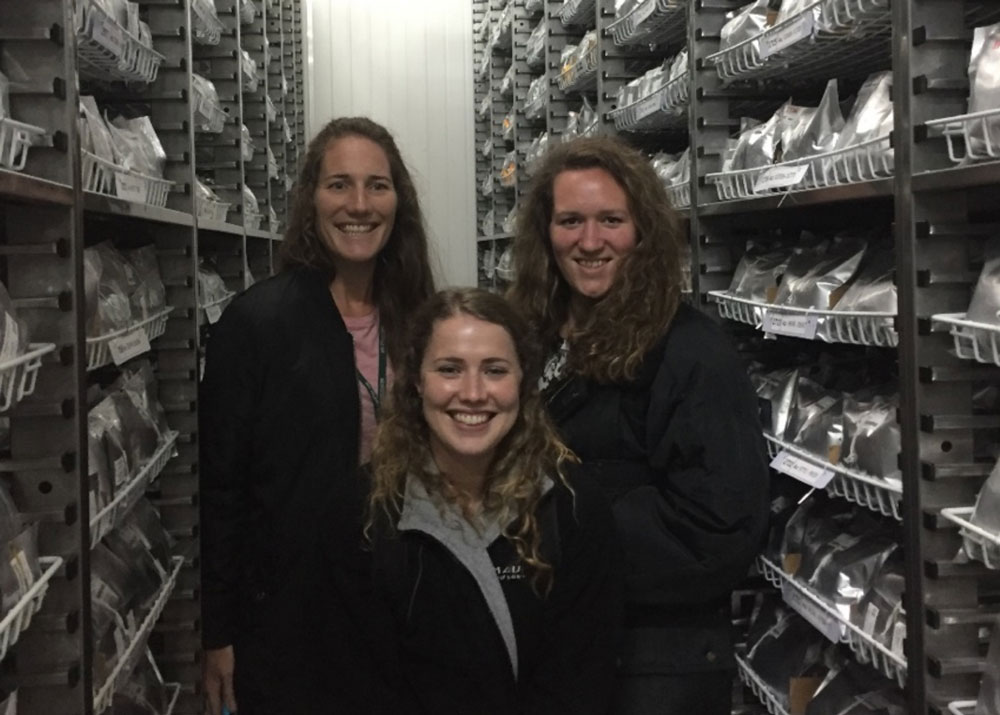

Kick-Starting Rice Research and Production Knowledge
December 19, 2018
As part of our efforts to support and encourage young Australians in study, careers and volunteering in international agricultural research, the Crawford Fund State Committees proudly support our International Agricultural Student Awards. The 2018 recipients of these Awards were announced in May, and we look forward to sharing the journey of these 22 dynamic Australian tertiary students as they gain international agricultural research experience and expertise.
Throughout 2018 and the early part of 2019, the successful Award recipients will travel to their host countries to research and explore their chosen topic areas. You can follow their progress here on the Crawford Fund website and read more about their findings, learnings and any challenges they encounter.
To-date we have featured the experiences of University of Western Australia student, Christian Berger; Queensland University of Technology PhD candidate, Thomas Noble; University of Melbourne student, Kimberly Pellosis; Luisa Olmo from the University of Sydney; Rachael Wood from Charles Sturt University; University of Melbourne student Ziyang Loh and most recently Lucinda Dunn rom the University of Sydney and Jessica Fearnley from the University of New England.
Now, thanks to The Crawford Fund ACT Committee, we deliver this summary of Australian National University PhD student, Jacinta Watkins’ journey to The Philippines to undertake the International Rice Research Institute’s (IRRI) Rice Research to Production course.

Jacinta Watkins, a Canberra university student undertaking a PhD focused on nutritional biofortification, recently participated in the Rice: Research to Production course at the International Rice Research Institute (IRRI) in the Philippines, with a global cohort including students, extensions workers and laboratory leaders from the Philippines, Thailand, India, Chile, the USA, England, Nepal, Indonesia, Vietnam, and two other Australian students also funded by the Crawford Fund.
“I went to IRRI knowing virtually nothing about how rice is grown. This course was therefore invaluable for my research to really facilitate my understanding of this crop learning from a broad range of scientists who perform state of the art research in their respective fields,” said Jacinta.

The classroom-based units covered a diverse range of topics including different rice ecosystems, the different methods of weeds, pathogens and pest control, to molecular biology, phenotyping and breeding techniques.
“Many of the sessions were also accompanied with practical experiences which I viewed as the strength of this course. One of the highlights was getting out into the field to learn both traditional and modern methods of land preparation, which included the use of a carabao (water buffalo), small-scale machines (such as the Hydrotiller) and using the tractor,” she said.
“Another highlight was interacting with the local farmers. We talked to both local farmers who are part of a cooperative that regularly use technologies and also subsistence farmers from a different province who were very traditional in their approaches,” said Jacinta.
“Interacting with farmers made all participants realise that if we want to translate our research we also need an understanding of farmers’ social situation and needs. Both groups of farmers were concerned about the future of rice production and agriculture in general as young people are not interested in becoming rice farmers. This was eye opening for me as engaging youth in agriculture will become a big part of future food security and is something I had not considered before.”

“Going into the course I didn’t expect the social and cultural aspects of rice farming to be one of the main things I would take away from this experience as it has ultimately led me to gain a much deeper appreciation of how much effort goes into producing rice.”
“This course really kick-started my understanding of this crop. It was an invaluable networking experience and I hope that I will get the opportunity to work with the people I met in the future. Overall, I highly recommend that anyone who works with rice or with agriculture in general, either in a research capacity or in the government sector should strongly consider attending this course,” she concluded.




 0
0